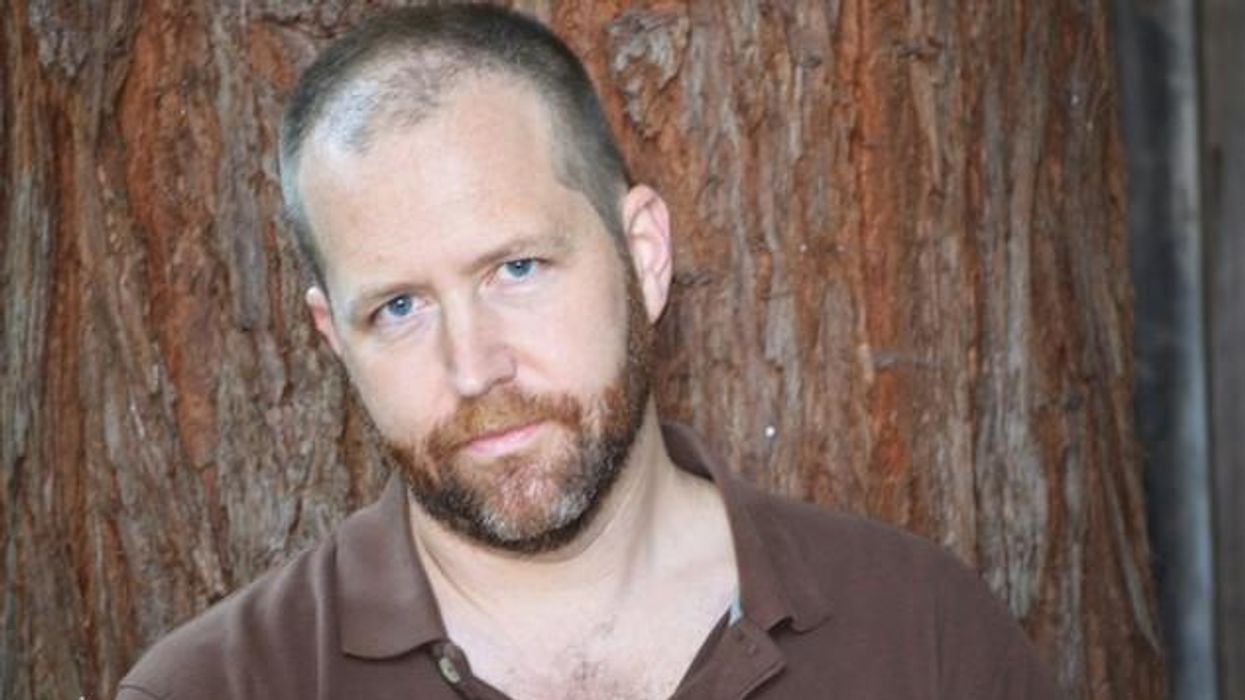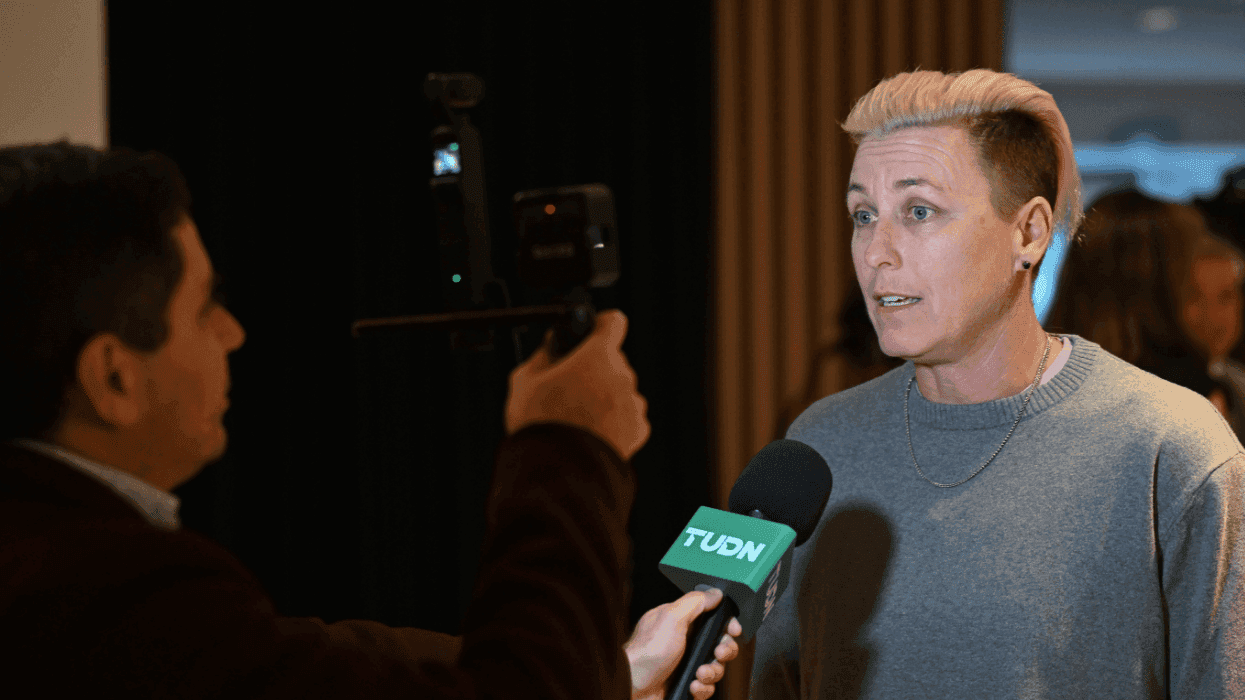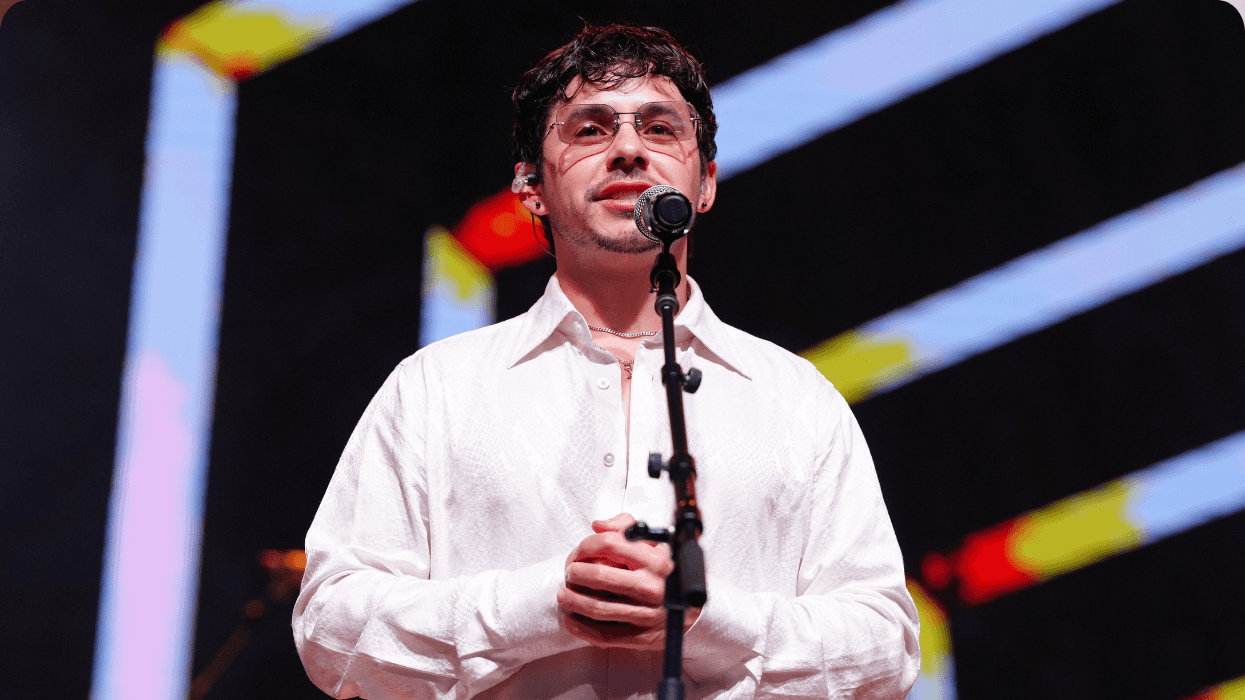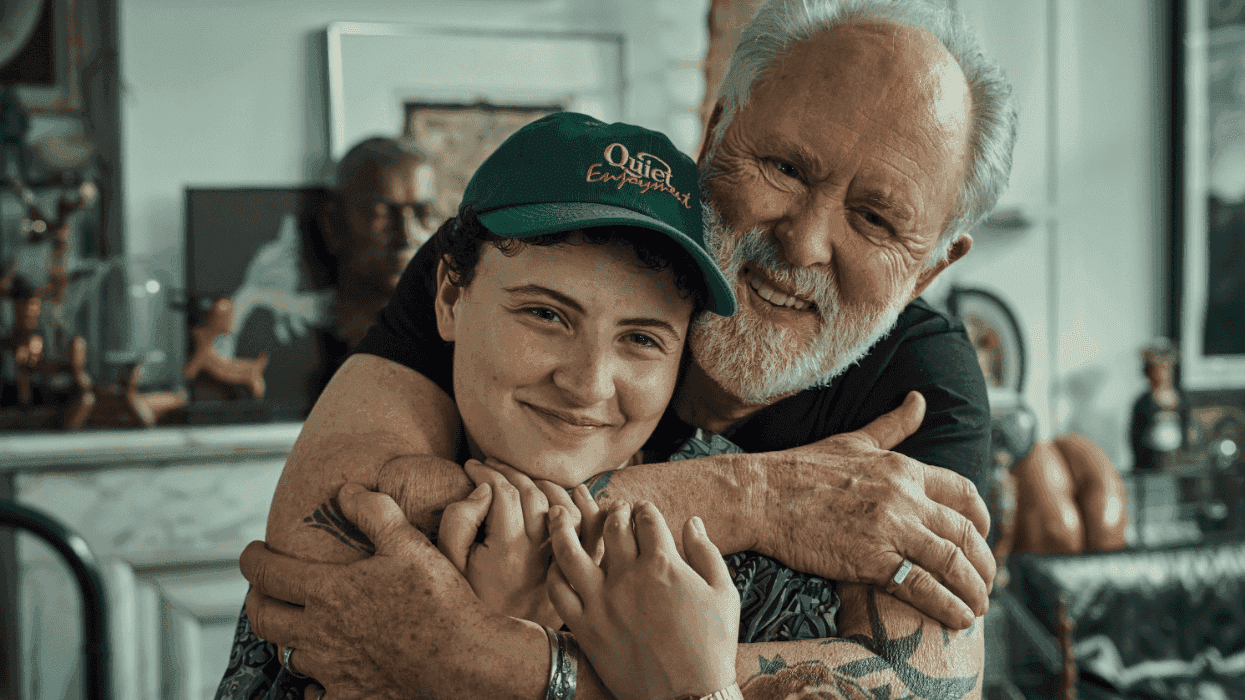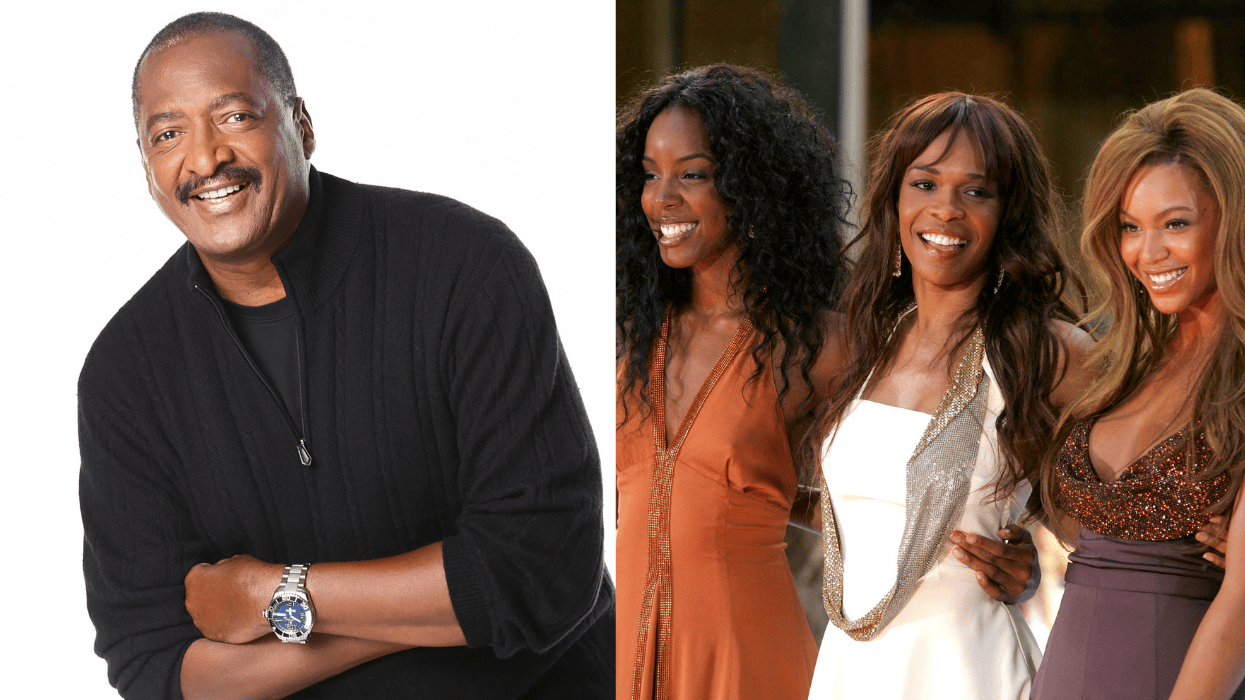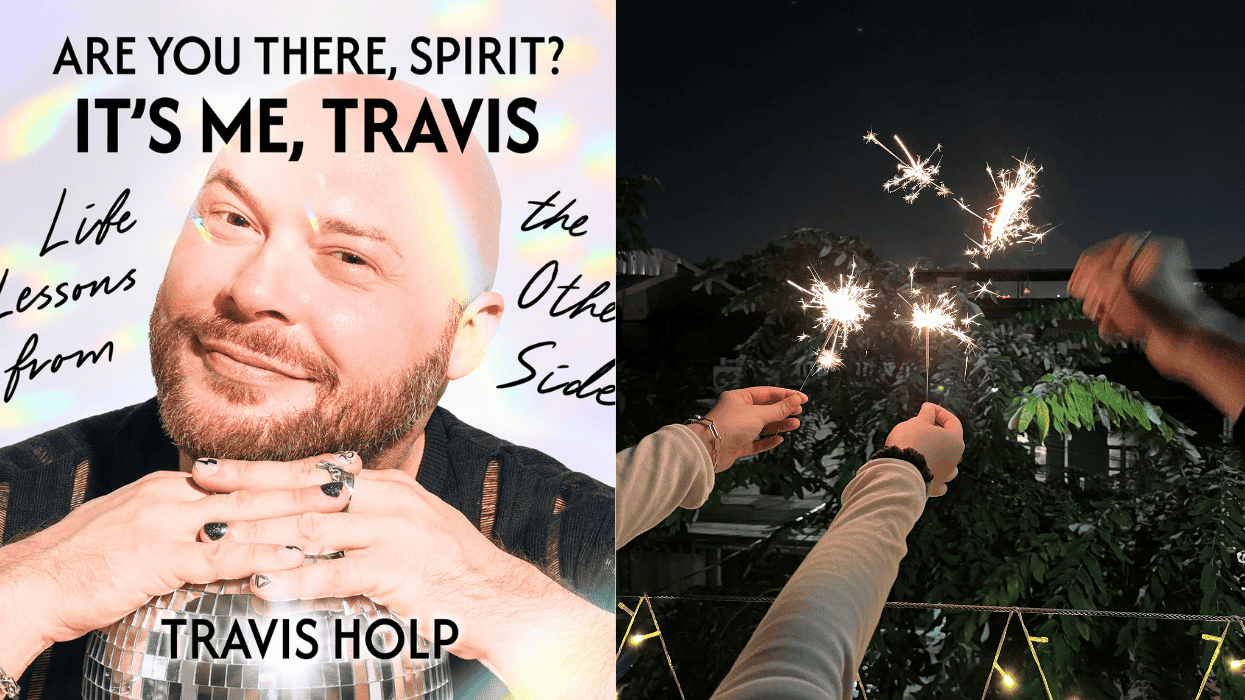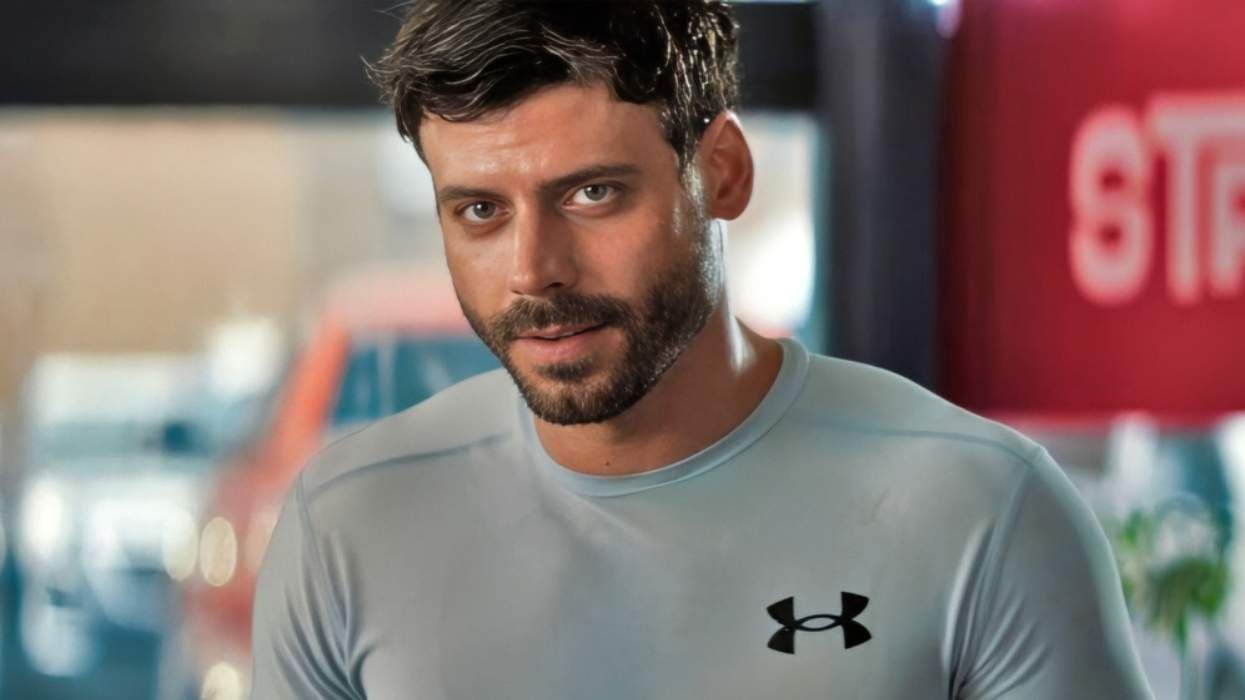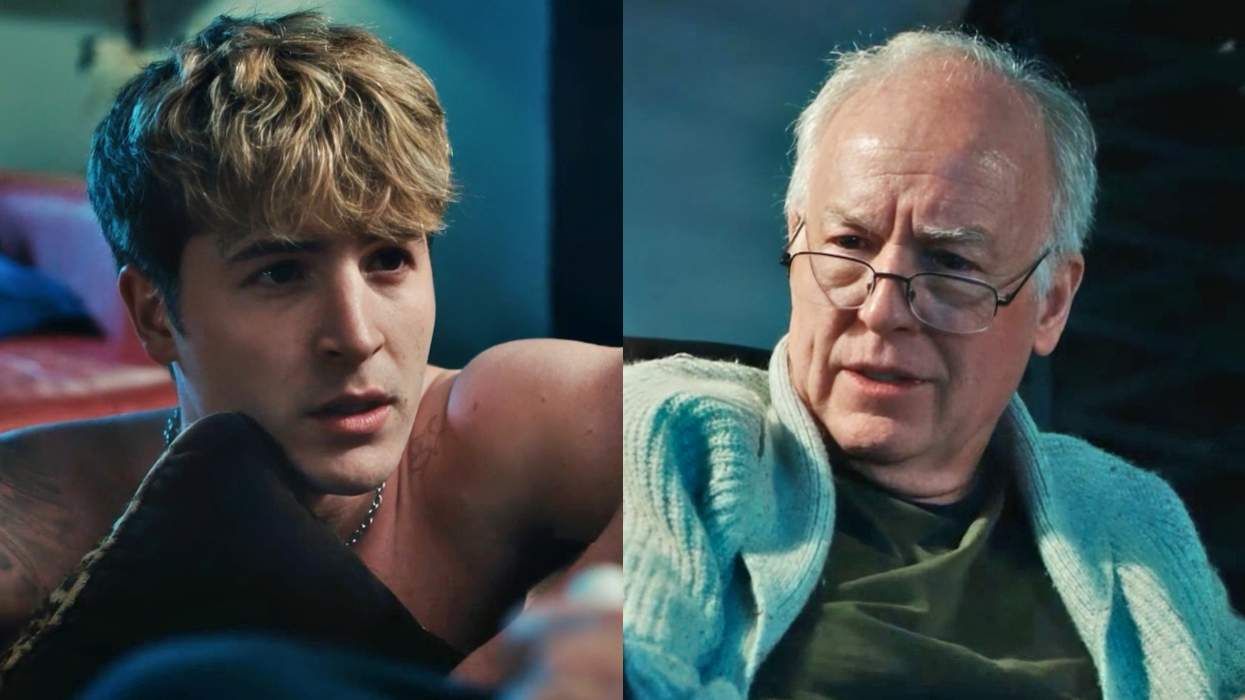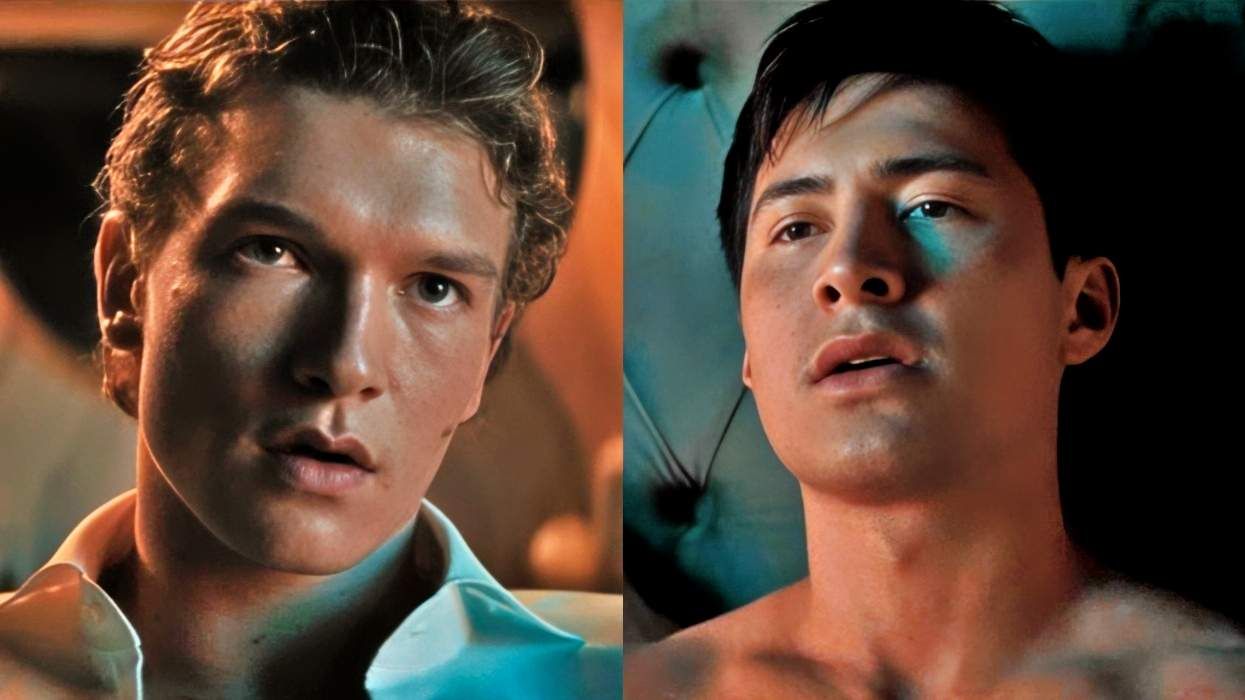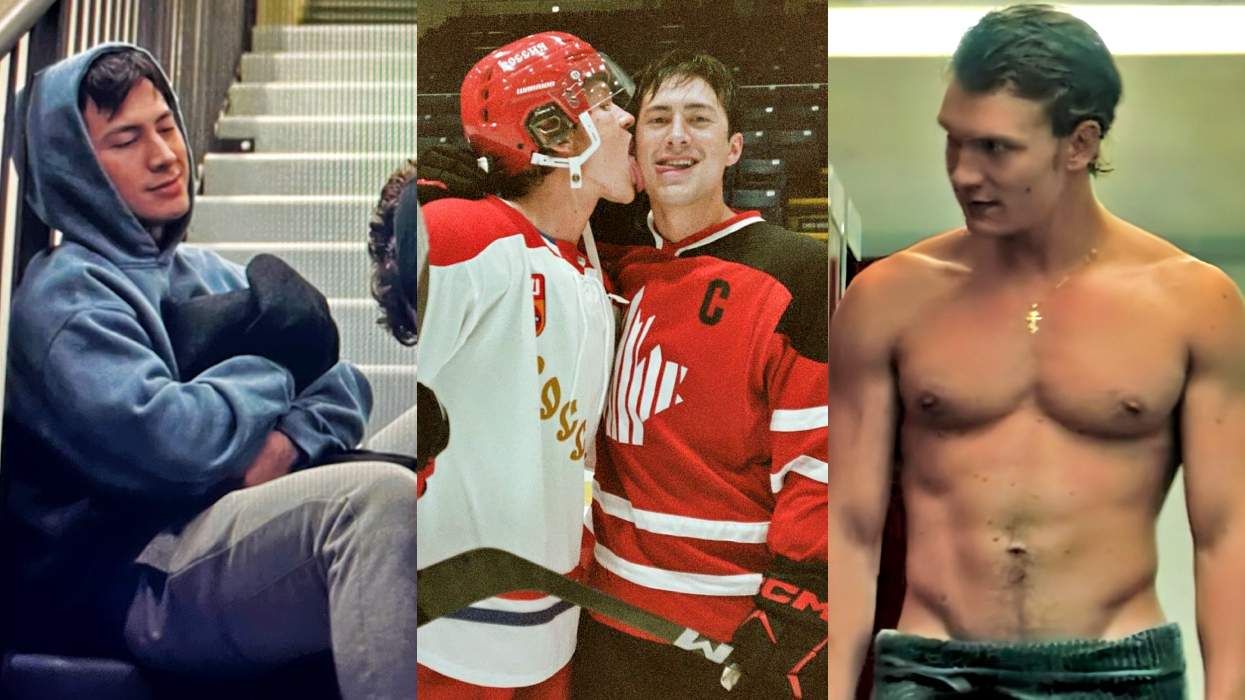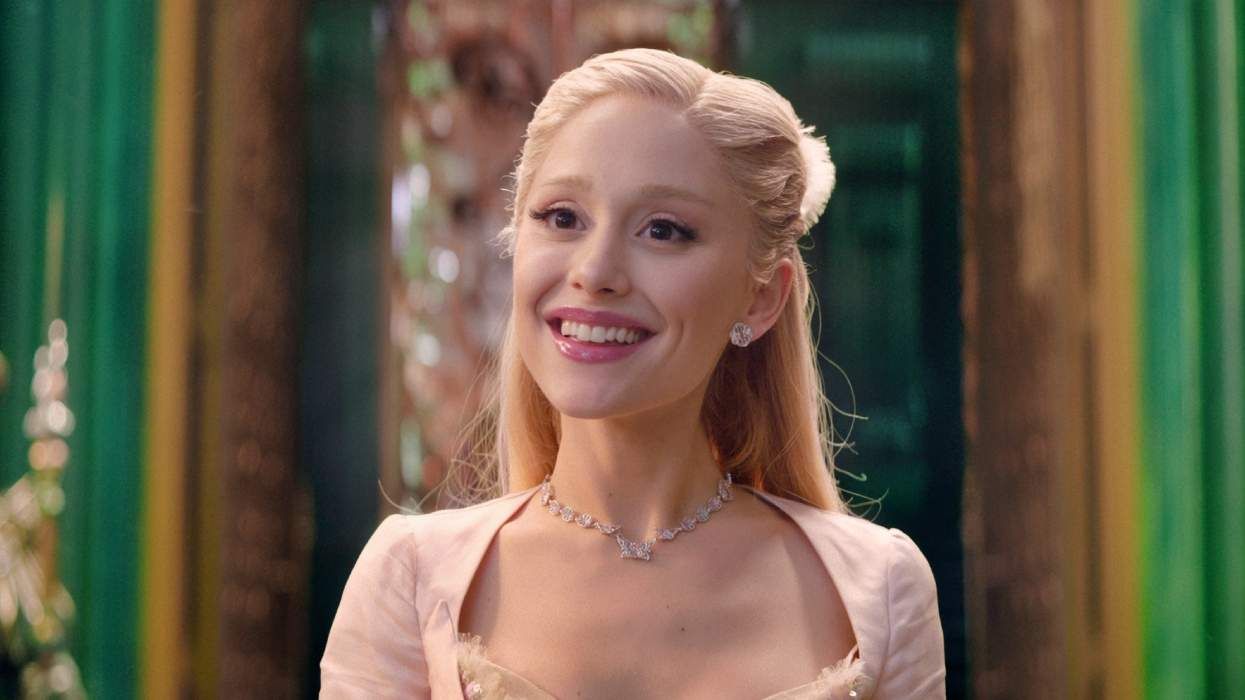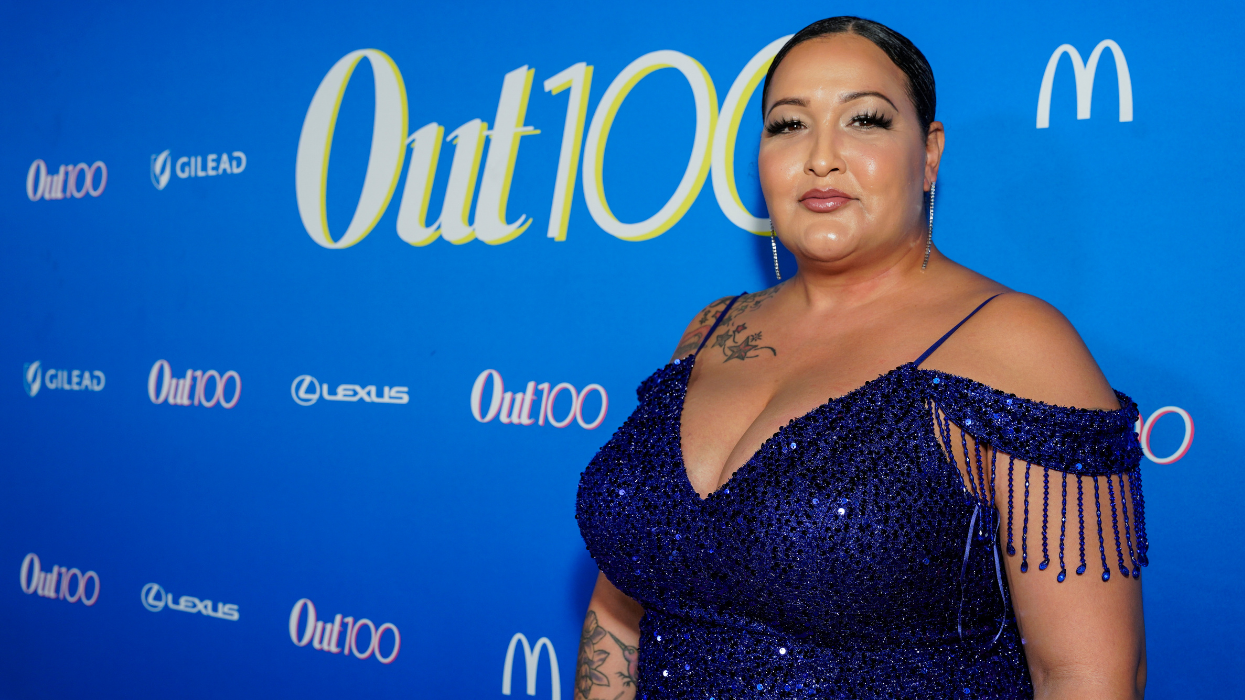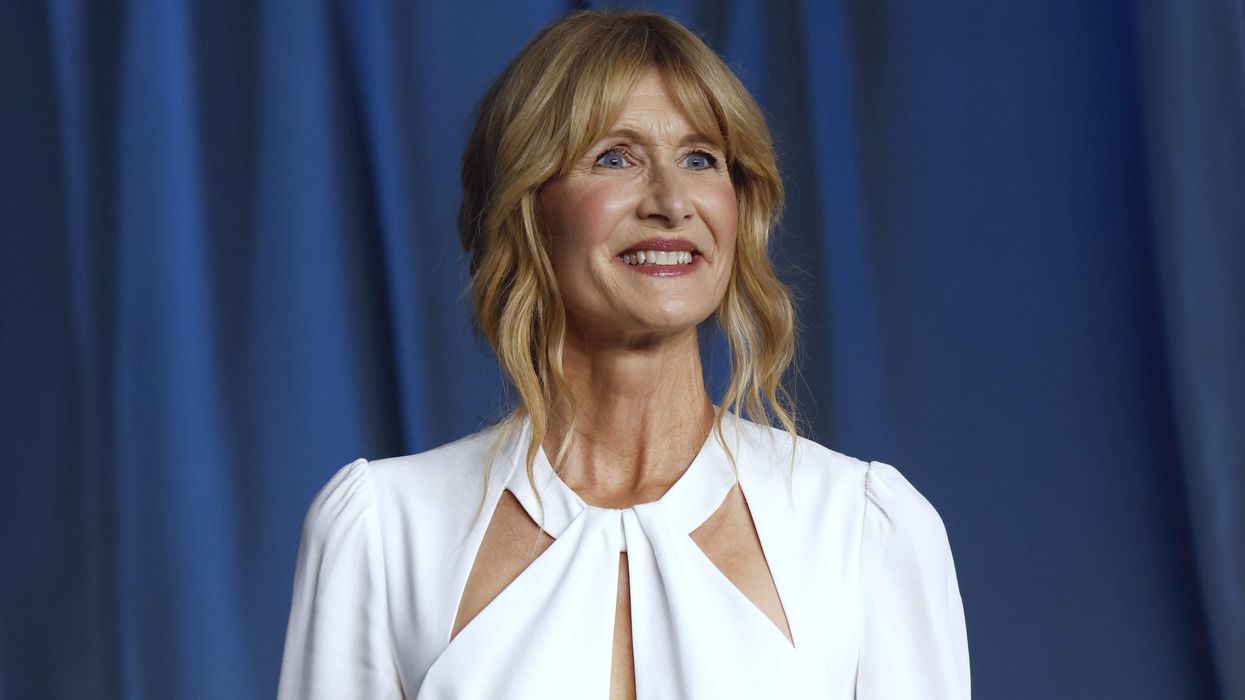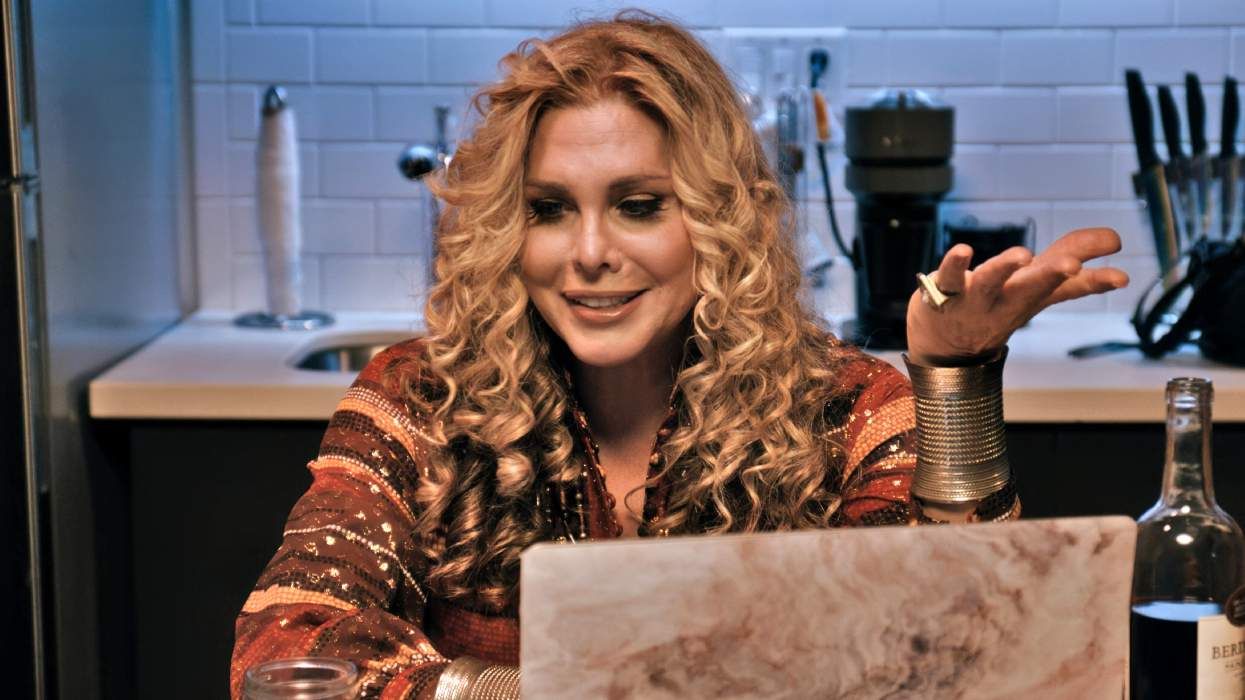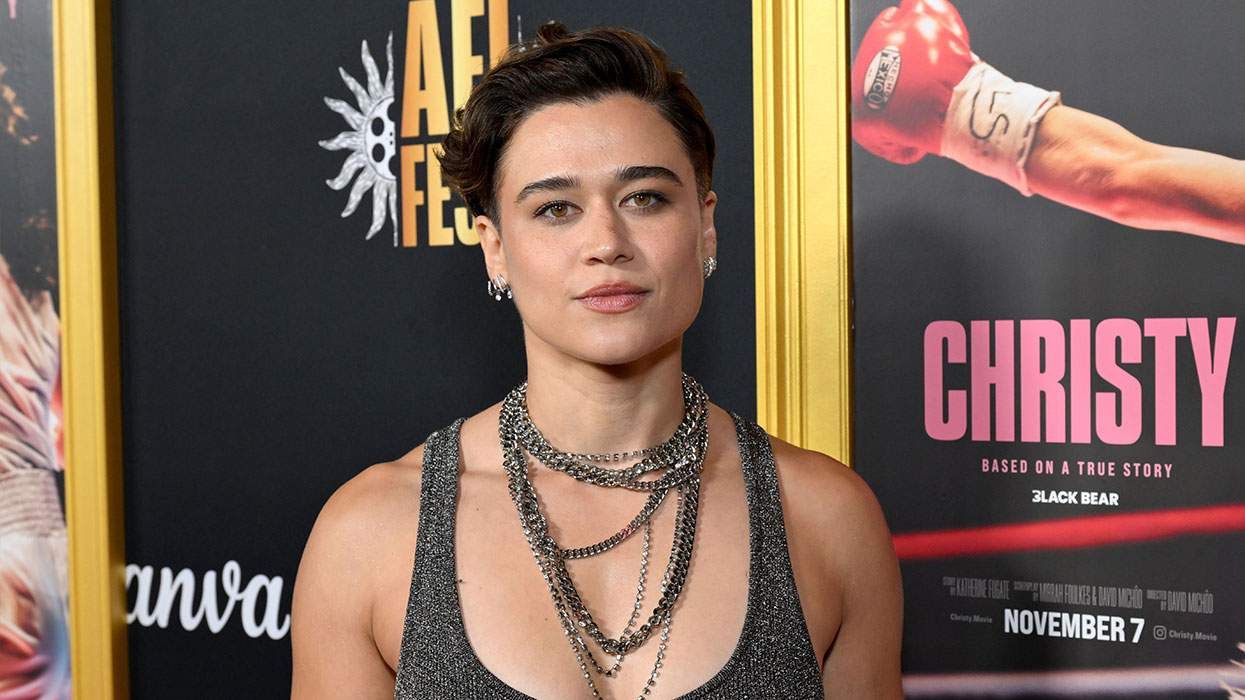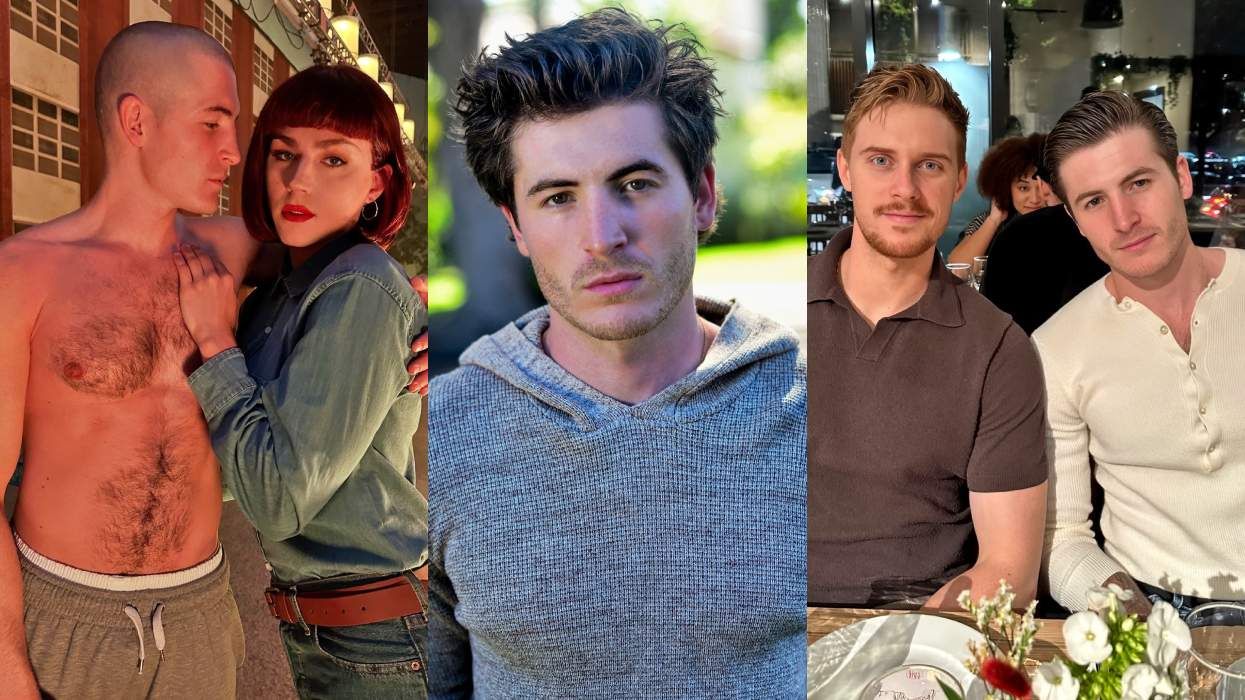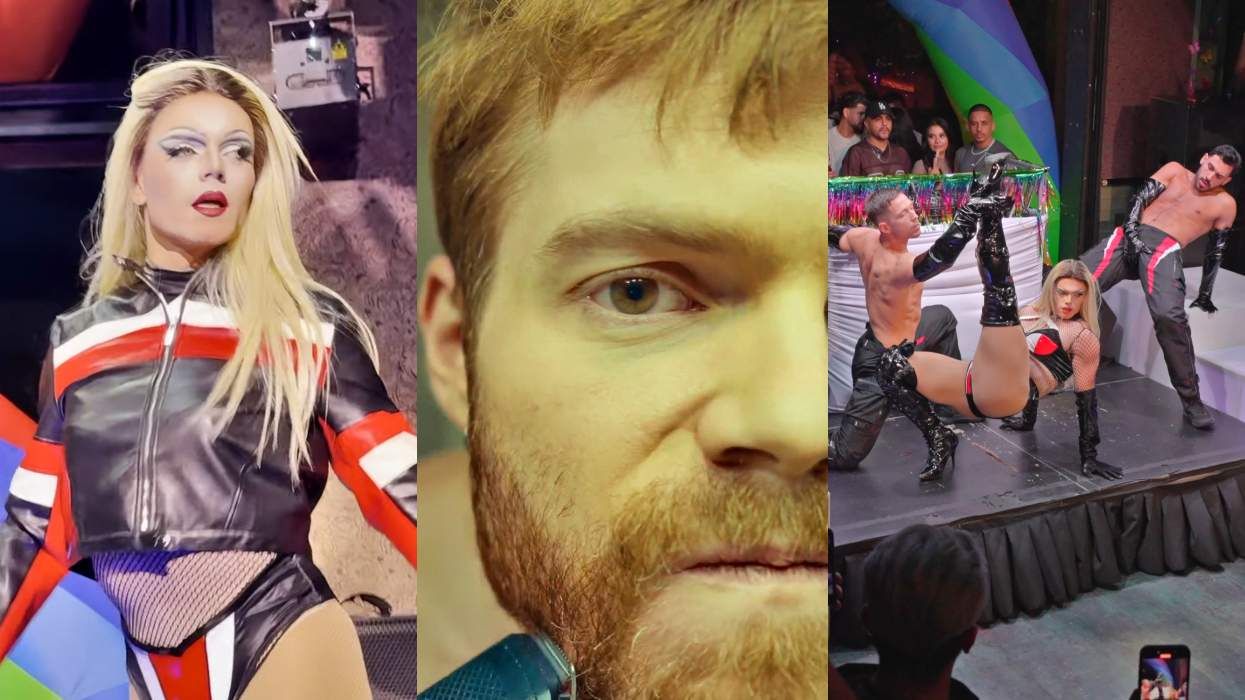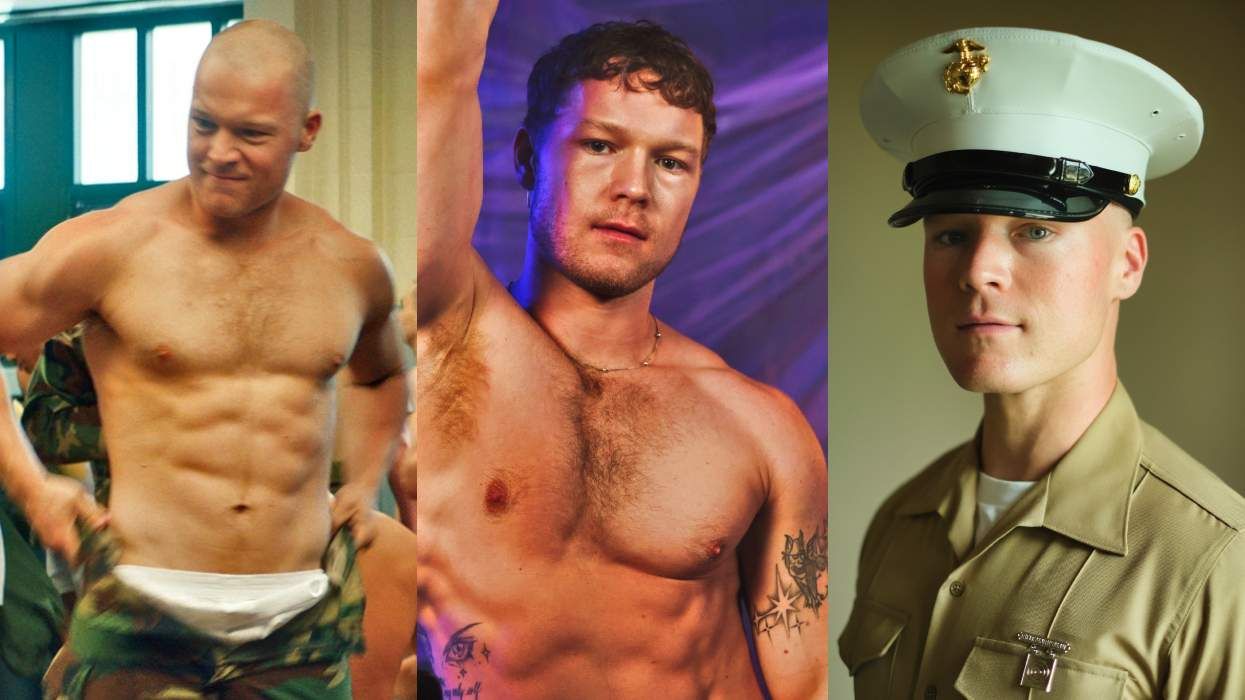Brent Calderwood has been on our radar for quite some time. In 1996, at the age of 19, he was included in the Out100 for his activism and LGBT-youth-oriented journalism. In the years since, his writing has appeared in numerous journals and publications, he's been awarded writing grants and fellowships, and he currently serves as Literary Editor for A&U Magazine. He also released his first book of poetry earlier this summer, to an overwhelmingly positive critical response.
The God of Longing, published by Sibling Rivalry Press, weaves themes of heartache and loss, eroticism and satire into an honest and accessible collection. Classical allusions and pop cultural references, though tempered by Calderwood's plain-spoken language, add a depth to his poems that lingers with the reader. D. A. Powell and Mark Doty have offered their praise to The God of Longing as the herald of a new literary force within the canon.
Currently taking a break from his national book tour with fellow Sibling Rivalry Press writers Stephen S. Mills and Matthew Hittinger, we caught up with Calderwood to ask our 10 most burning questions. From eroticism to education, he offered a frank assessment of the current poetic landscape, and explained what needs to be done to make poetry less scary.
Out: How would you describe yourself professionally, in a sentence or so?
Brent Calderwood: I'm a writer and editor. I've been a journalist/essayist since I was 18, and then I do editing of all kinds -- I do educational editing and I work with private clients on their books. So professionally, that's me.
You wouldn't describe yourself as a poet, then?
Oh, good point. Definitely. It's funny because when someone asks you to describe yourself in terms of a career, of course poetry doesn't come to mind immediately because it's not lucrative. Even for someone like Billy Collins, who's one of the best-selling poets in the country, he'll say "I'm a poet" and then people will respond, "Yeah but what do you do?" Or they'll say, "Ohhh my four-year-old daughter writes poetry." So you're right, I should definitely include poet as part of my career identity.
This is your first collection of poetry. Can you explain the roots of the title, The God of Longing?
I chose the title The God of Longing because, to me, longing has many senses. Not only the obvious ones of heartache and yearning, but also sexual desire and eroticism, and it can also mean nostalgia. It just encompasses the topics covered in the book.
It came out of a line in one of my poems -- and it's also a reference to various gods. It's sort of an acknowledgement that I do bring out classical allusions in my work even though I also try to incorporate pop culture and some naughty stuff as well.
"Catalogue" is the poem that the eponymous line comes from. In that poem especially, you switch between classical allusions and popular cultural references -- why did you choose to use both so regularly?
Yes, "Catalogue" is written in six sections, and it does go back and forth. One will talk about something classical like Sappho, and then the next will be about Psycho and Hitchcock, and then the next about a personal relationship. The pop culture stuff... I love any allusion or symbol or reference that is resonant for people. I think that prior to the mid-20th century, most of that was classical or biblical and people assumed that poetry had to include some of those references. But post-1950, I think people have been playing a lot more with bringing in contemporary references. Frank O'Hara had it in a lot of his work, and he just talked very matter of factly about the people in his life. So to me, anything is fair game including Teenage Mutant Ninja Turtles or Margaret Cho or Ellen DeGeneres -- whatever will resonate with readers.
Why did you decide to put together this collection and publish at this time?
Like any writer, I've of course always wanted to have a book. I started writing poetry when I was a kid. But it's interesting, you have child prodigies for art or music but not for writing -- you really have to grow into your maturity to be a fully-formed writer. Writing through my twenties and now up to my mid-to-late thirties, I've begun to make work that feels more mature and crafted. I can take those raw feelings from childhood or from adult romances and tighten them into something that has a sort of wry wisdom. And I finally had enough work published in individual journals and anthologies fill a book. I had the material, and I felt like I had been working on creating a sort of narrative arc that lent itself well to being printed as a collection.
You've said that being a poet isn't the most lucrative of careers, and that the terrain has changed, especially over the 20th century. What do you think the current state of poetry is? What place does it have right now?
I think that poetry always has been and always will be essential to human experience and to literature. But the state of it is that people now think of poetry as something that is elite or old fashioned, whereas, prior to the 20th century, most English literature was poetry. It's only post 20th century, or post 19th century, that people think of poetry as specialised in western culture. So I think the state of it is that it needs to be resuscitated and made populist, and that's another reason why I include pop culture reference -- I try to make it really relevant.
I work in education, and there's a huge problem with the way poetry is taught. I think that teachers purposefully use poems that, first of all, are public domain, which is a problem because they're usually out of date and not necessarily relevant to kids. And then teachers also use poems that they think are puzzles or riddles, and then kids get freaked out and grow into people who, when I tell them I'm a poet, change the subject! Because they were traumatized by poetry as a kid. But to me, good poetry is like any good art -- it's good. You should be able to get it when you first see it or hear it or read it, and then because you like it, you return to it and it acquires a deeper meaning. I think that more poetry can be written in such a way, and then it won't be so scary.
So far, your book tour has stopped in New York City and Boston. What have the audiences been like?
It's been a great mix of age and culture, ethnicity, sexuality, gender. Overall, of course, it's going to attract readers who like work that deals with topics relating to gay male identity. But it's actually brought in other people as well, which I'm really glad about. It's been ... often it's been poetry readers and a lot of poetry writers. There's a critique of contemporary poetry that there are more writers than readers, so a lot of people who show up for poetry readings do also write. What's great about that is that there's a built in audience of people who love and appreciate it.
I think older gay men -- older than me, 50 and older -- respond to my poetry because it appeals to traditional forms and talks about childhood challenges with sexuality that are, thankfully, changing in our culture. I think people who are older than 35 will relate to it more on that level, but then it also speaks to a kind of anxiety and nostalgia about childhood and sexuality that everyone can relate to ... so in that way it's really got a diverse group of readers.
You mentioned earlier that you like to include naughtiness in your poetry. How do you approach that? What's the proper balance?
Actually, the more naughtiness or eroticism that I can bring to my work, the better. I think that my default as a writer, whether of poetry or of essays, is to be the pensive poet, and to look at things like heartache and difficult memories. But to balance that out I try to read work that is playful, sexy and fun. So, to me, the balance would be great if I could do 100% of that, and with my next book I'm going to work harder to be more playful. I think more work should be naughty or -- you asked the state of poetry today. I think bringing in more pop culture and more sexuality and more things that shock, but in a way that is for art's sake and not for shock's sake, is a good thing.
Do you have a spirit animal?
[Laughs] Oh I'm embarrassed to tell you! I actually have three and they're all cliche. The first would be a unicorn, and there's actually a sonnet about a unicorn in the book -- talk about risky, it's totally cliche. For all the obvious reasons: I felt like a unicorn growing up, I didn't fit in, and then of course there's the phallic dimension. And I love that they're trendy again now -- they've become this full-on symbol of young male sexuality, which I love. The other two are, a butterfly, again for obvious reasons, and then a lion would be the third. I'm a Leo, and lions are so majestic and strong, but then also kind of silent. I feel those are all different parts of myself.
Last question. For people who enjoy your book of poems, are there a few other contemporary writers you would suggest?
First of all, I have to give a shout-out to my touring mates, Stephen S. Mills and Matthew Hittinger. Stephen won the Lambda award for gay male poetry a few years ago, and his new book looks at gay marriage from an edgy, challenging perspective. His work is daring and straightforward in a way I envy. Matthew's work is heartful in way I also aspire to, and his formal poems, especially his villanelles, are gorgeous. Marcelo Hernandez Castillo is a poet to watch out for. He writes about issues of class, race, immigration, and citizenship with craft and wisdom. Joanna Hoffman made her name as a slam poet and writes about politics and family in way that's perfect for performance but is also really precise and moving on the page. Ocean Vuong -- his writing is both delicate and heart-wrenching. He uses form really beautifully, and his poem "Aubade with Burning City" makes me cry every time.
Calderwood, Mills and Hittinger will make stops in San Francisco and Los Angeles as part of their tour with Sibling Rivalry Press from January 28 to February 6. Calderwood will also be teaching a Poetry Lab in Long Beach on February 5. Details can be found on his website.


